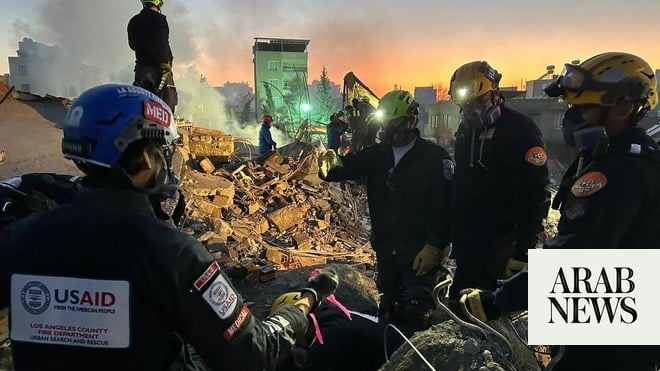
It is no exaggeration to say that the Iranian regime is currently surviving on two basic elements: Sectarianism and terrorism. The regime’s reliance on these two elements is not a baseless allegation or mere speculation, but a statement of fact, since both are enshrined as policy in several articles of the Iranian constitution, including articles 12 and 154.
The Iranian regime is building its strategy through the use of its main tools — one of these is the Islamic Revolutionary Guard Corps, which operates on two fronts, internally and beyond Iran’s borders. Internally, the IRGC, represented by the Basij forces, terrorizes the Iranian people and quickly and ruthlessly crushes any dissent. The IRGC’s overseas forces, meanwhile, can be divided into two parts. The first is its Iranian-nationality forces represented by the Quds Force and troops from the regime’s regular army. The second is the multinational sectarian militias established in Pakistan, Lebanon, Iraq, Afghanistan, India, Yemen, Nigeria and other nations to serve Iran’s interests wherever they are needed.
If we want to eradicate terrorism, reduce sectarianism and restore stability to the Middle East, we must present a comprehensive definition of terrorism that bypasses sectarian or doctrinal loyalties. Ignoring one source or perpetrator of terrorism while focusing on another can only strengthen both and increase resentment, sectarianism and terror in an endless, futile cycle of devastation.
Some describe the Iranian regime’s proxy militia Hezbollah as a state within a state. The same is true for the IRGC, which operates its own unofficial state within Iran with all the apparatuses of any state — controlling a massive military force, having de facto power over the economy and directing the country’s security forces and operations. While Hezbollah controls and supervises Beirut Airport, the IRGC controls all of Iran’s most important airports, most notably the Imam Khomeini International Airport in southern Tehran.
To effectively address the Iranian regime, especially the IRGC and its lethal and malign activities in the region, political activists, campaigners, humanitarians and all decent people need to formulate an integrated strategy to counter the IRGC. This requires the participation of all countries interested in protecting their own interests and in supporting real regional stability and coexistence.
All nations must realize the urgent need to work together to help deactivate and eradicate Iran"s terrorism and sectarianism.
Dr. Mohammed Alsulami
The first measure is legal confrontation; raising legal actions against the Iranian regime to hold it accountable for all its violations of international treaties and conventions, and its support for terrorism and other illegal actions. The recent news of the alleged involvement of an Iranian diplomat in planning a terrorist attack in Europe is no surprise to Iranians, as the regime is regularly accused of carrying out similar assaults and assassinations of dissidents in exile — like the killing last year of the Ahwaz opposition leader Ahmed Mola, who was shot three times at point-blank range outside his home in the Netherlands. Although his killer has not been caught, the brutal murder was a textbook example of a regime assassination, with Mola regularly subjected to death threats for his political activism in exile.
Second is economic confrontation, so that Iran’s regime and Iranian companies are boycotted. The IRGC owns and controls hundreds of companies worldwide that are registered under civilian “dummy” front accounts to evade detection as part of a complex financial network. Experts suggest that these companies, which are routinely used for money laundering, should be catalogued and put under surveillance by international intelligence bodies, which should coordinate to track their illicit financial dealings and funding of terror activities. At the same time, the current contracts of international businesses with Iranian companies should be reviewed to ensure that these companies are civilian and not the economic arms of the IRGC.
Third should be a military confrontation, in which the terrorist organizations of the IRGC are targeted around the world. This specifically refers to those organizations and militias (non-state actors) associated with Iran in the Middle East and mercenaries recruited by the IRGC in Afghanistan, Pakistan, India and other nations. It is necessary to emphasize that there is no difference between these militias and other extremist terror organizations such as Daesh, Al-Qaeda, and Boko Haram.
Finally, inter-state intelligence coordination and the exchange of information regarding the activities of the IRGC and its military, economic, intelligence and associated cells is needed. It is also important to closely monitor the movements of senior Iranian figures accused of involvement in terrorist operations worldwide, and to ensure that countries coordinate in extraditing those who evade justice. These figures include Ali Akbar Velayati, political adviser to the supreme leader of Iran, who was personally involved in a terrorist attack on Argentine territory in the 1990s, in which many people died.
Achieving these measures is not impossible but requires real international will and high-level coordination between the countries affected by Iran’s bloody terror activities and those not directly affected. It is essential for all nations to realize the urgent need to work together to help deactivate and eradicate terrorism and sectarianism and to eliminate non-state terror actors regionally and globally.
Dr. Mohammed Alsulami is an expert in Iranian affairs. He received his Ph.D. from Leiden University in 2014. He is the founder and chairman of Rasanah: International Institute for Iranian Studies.
Disclaimer: Views expressed by writers in this section are their own and do not necessarily reflect Arab News" point-of-view












